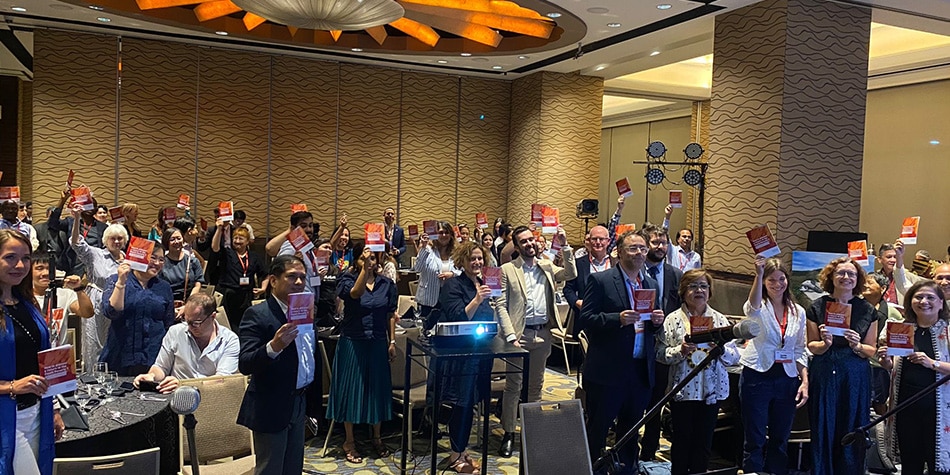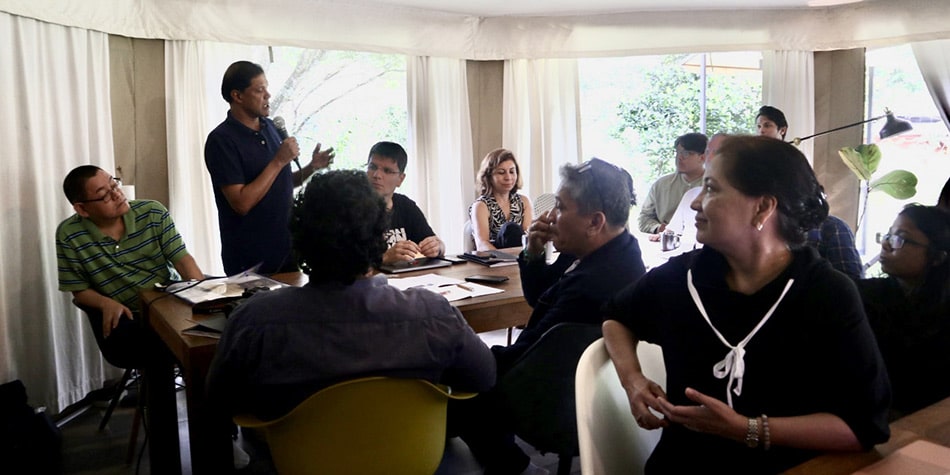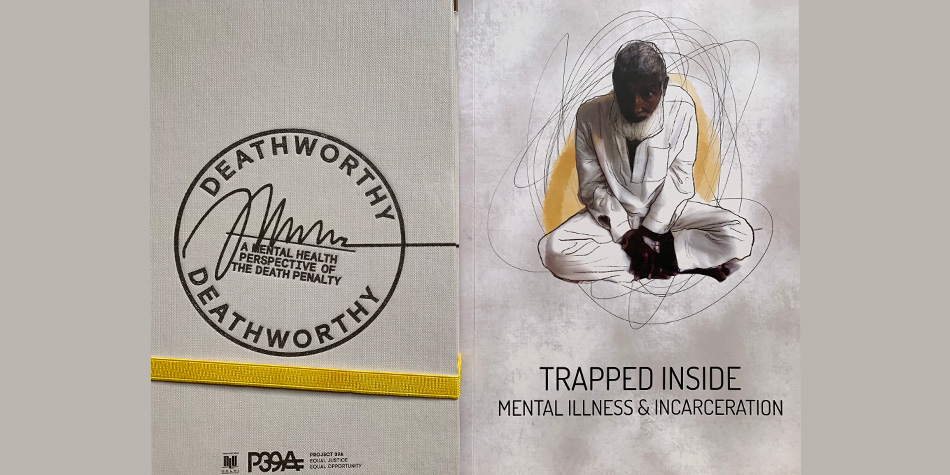
Call for tenders for an external final evaluation
External Evaluation of the project “Preventing the risk of resurgence of the death penalty in three abolitionist countries” of 36 months in the Maldives, Philippines and Turkey
Terms of Reference
- Presentation of the World Coalition Against the Death Penalty
The World Coalition Against the Death Penalty, an alliance of more than 160 NGOs, bar associations, local authorities and unions, was create in Rome on 13 May 2002. The aim of the World Coalition is to strengthen the international dimension of the fight against the death penalty. Its ultimate objective is to obtain universal abolition of the death penalty. To achieve its goal, the World Coalition advocates for a definitive end to death sentences and executions in those countries where the death penalty is in force. In some countries, it is seeking to obtain a reduction in the use of capital punishment as a first step towards abolition.
Mission: The World Coalition Against the Death Penalty’s founding mission, as stated in its Bylaws, is to bring together private, public, international, national, local and regional organizations that share the common objective of universal abolition of the death penalty.
Goals: The aim of the World Coalition is to strengthen the international dimension of the fight against the death penalty. Its ultimate goal is the universal abolition of the death penalty.
Guiding Principles : The World Coalition provides a global dimension to the sometimes isolated action taken by its member organizations on the ground. It complements their initiatives, while constantly respecting their independence.
Vision : The World Coalition’s vision is that of a reference global network trusted worldwide to coordinate, support and amplify the work of tis member organizations towards universal abolition of the death penalty.
Two Main Orientations emerged following a consultation of membership and were unanimously adopted by the World Coalition’s General Assembly in June 2017:
– to support member organizations; and
– to coordinate international advocacy.
By encouraging networking amongst its members as well as an exchange of experiences, the World Coalition is able to propose common international or regional strategies for the abolition of the death penalty, support abolitionists throughout the world and to provide them with information, awareness-raising and mobilization tools. - Background
Since the creation of the World Coalition Against the Death Penalty in 2002, significant progress has been made towards ending the death penalty. But, while the progress of the abolitionist cause seems irreversible, abolitionists risk serious setbacks in the years to come. Among two-thirds of the countries in the world that have abolished the death penalty in law or in practice, some wish to resume executions.
In 2018, the World Coalition launched a major campaign to secure the abolition of the death penalty in countries that are abolitionist in law and practice and where there are known risks of a resurgence of the death penalty. This project is intended to be a pilot project that will systematize the abolitionist movement’s response to the risks of reinstating the death penalty after abolition, based on the example of three target countries. This external evaluation will be a key exercise.
The World Coalition and its member organizations often react on a case-by-case basis when risks of reinstatement of the death penalty appear, in an emergency, without any real concerted strategy of action. One of the impacts of this project will be to develop this strategy based on good practices and lessons learned from the activities carried out in this project.
Beyond the primary objective of curbing the risks of a return to the death penalty in the three target countries, this phase 1 of the project corresponds to a “pilot project” that will allow for the development of tools and processes that can be replicated in other countries and will have the impact of enabling the abolitionist community to respond better, faster, and more effectively when the alarm bells ring. - Objectives of the external evaluation
An independent external evaluation will be conducted at the end of the first phase of the project to assess the relevance and coherence of the project in relation to the original objectives.
The evaluators will follow the principles proposed by the OECD Development Assistance Committee (DAC): impartiality and independence, credibility, utility, participation and coordination.
The evaluation will be carried out on the basis of the five criteria defined by the DAC: relevance, effectiveness, efficiency, impact and sustainability, focusing on relevance, effectiveness and coherence in relation to the objectives that the project initially set itself (choice and achievement of objectives).
In particular, the criteria of effectiveness and impact will be taken into account to measure the changes to which the project has contributed and the effects produced in terms of capacity building and the coordination of international advocacy.
It will also be necessary to question the effectiveness of the project’s “pilot” function. Faced with the risk of resurgence of the death penalty, the project intends to facilitate the transition from an ad hoc, after-the-fact and disparate response to a proactive, strategic and structured intervention. Beyond the target countries, the pilot project is intended to contribute to the development of a formalized strategy to respond more quickly to signs of a resurgence of the death penalty. It would be relevant for the evaluation to provide an external perspective on how this pilot function was organized and implemented to achieve its objectives.
It will also be important to question the extent to which the project contributed to learning. The World Coalition wants to position itself more as a learning resource center on the death penalty around the world. The capitalization conducted during this project is particularly important and it would be interesting if the evaluation could provide feedback on this point.
Finally, particular attention is expected on the analysis and effects of the project in terms of capacity building of civil society actors (World Coalition, project partners and direct beneficiaries).
• Evaluation questions
– Axis 1: Relevance and effectiveness of intervention strategies: did the activities carried out lead to the expected results and specific objectives of the project?
– Axis 2: Effects produced in terms of capacity building and coordination of international advocacy: How was the support to partners and direct beneficiaries of the project perceived and how could it be improved for phase 2?
– Axis 3: Expected recommendations: what are the avenues for improvement for phase 2?
In their service offer, consultants are asked to reformulate and organize these questions to address these lines of thought, based on their understanding of the project, the issues and the objectives of the evaluation that they will have outlined.
• Deliverable
The evaluator will prepare an evaluation report describing the evaluation process and presenting conclusions and recommendations for the project. This project is cofounded by several donors, including the French Development Agency (AFD-Agence Française de Développement) and the Fondation de France. Where possible, a report will be prepared in French for the AFD and a summary will be prepared in English for distribution to all partners.
A verbal presentation and explanation of findings will be made by the evaluator to the World Coalition working groups at a virtual debriefing workshop in 2021.
• Scope of the Evaluation
The evaluator will review and analyze existing project documents provided by The project coordinator.
– The evaluation process will include interviews with representatives of partner organizations and donors, NGOs, and the government sector.
– The evaluation will focus not only on the immediate impact of the projects (effectiveness), but also on their management component (efficiency).
– The evaluator will have to rely on the tool sheets of AFD’s guide. - Methodology
The evaluation will be conducted using a participatory approach, which solicits the opinions and assessments of all parties. The evaluation will use the results of the previous internal evaluation of this project. - Candidates’ Profile
Graduate degree (Master’s or equivalent) in project management or law, political science with significant experience in project management;
Proven professional experience in ex-post evaluation of at least 5 years in project design, implementation and evaluation;
Previous experience in a human rights project evaluation would be highly valued;
Previous experience in the evaluation of projects funded by the European Union and/or the AFD would be highly valued;
A good competence in report writing;
Fluency in English and French;
Members of The evaluation team should not have been directly involved in The design and/or implementation of The project.
The financial proposals of the experts, for this evaluation, will have to be under a maximum ceiling of 20 000 € Taxes included (twenty thousand euros) and will distinguish the fixed expenses (fees) from the expenses to be justified (expenses related to the mission).
All other unforeseen costs – whatever their nature – will remain at their charge. - Timeline
July 11, 2021: Deadline for receipt of bids
July 11 – 15: Analysis of offers and selection of evaluator
July 15 – August 15: Framing and documentation phase
August 15 – September 15: Consultation phase through remote interviews
September 30, 2021: Deadline for submission of a preliminary summary
October 15, 2021: Deadline for the final report in French and the summary in English. - How to apply
The documents to be submitted are:
• CV
• A 3-page memo with proposed methodology for the evaluation
• A financial offer which should distinguish between lump sum expenses (fees) and expenses to be justified (miscellaneous expenses).
Contact person:
Applications should be sent to recrutement [at] worldcoalition.org by July 11, 2021, midnight.







